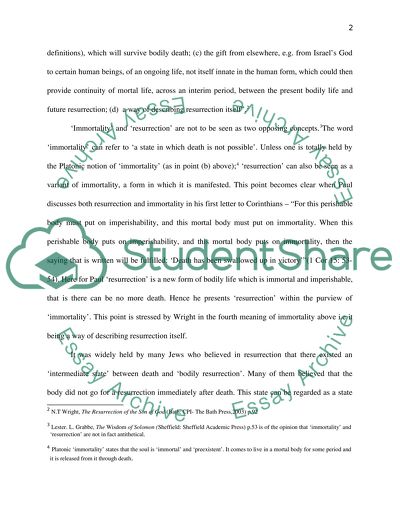Cite this document
(“The Notions of 'Immortality' and 'Resurrection' in the Wisdom of Essay”, n.d.)
Retrieved from https://studentshare.org/family-consumer-science/1417969-the-notions-of-immortality-and-resurrection-in-the
Retrieved from https://studentshare.org/family-consumer-science/1417969-the-notions-of-immortality-and-resurrection-in-the
(The Notions of 'Immortality' and 'Resurrection' In the Wisdom of Essay)
https://studentshare.org/family-consumer-science/1417969-the-notions-of-immortality-and-resurrection-in-the.
https://studentshare.org/family-consumer-science/1417969-the-notions-of-immortality-and-resurrection-in-the.
“The Notions of 'Immortality' and 'Resurrection' In the Wisdom of Essay”, n.d. https://studentshare.org/family-consumer-science/1417969-the-notions-of-immortality-and-resurrection-in-the.


